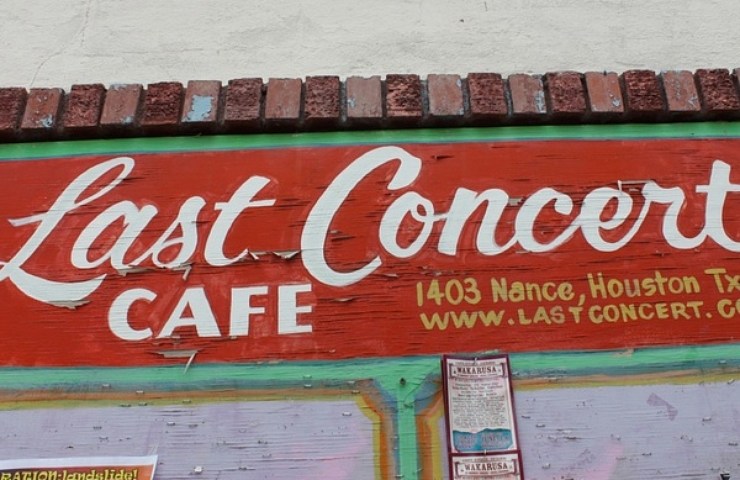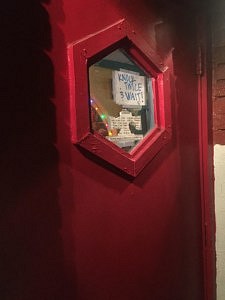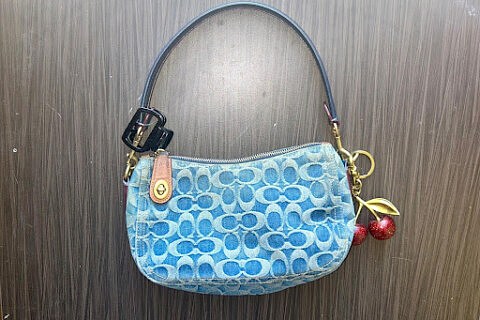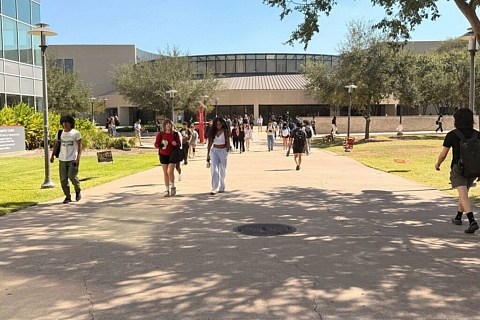On a winding backstreet only feet away from an I-10 exit ramp, the Last Concert Café rests obscurely at 1403 Nance—solely identifiable by an unmarked, crimson door.
Considered by longtime Houstonians to be the premiere concert venue since it’s establishment in 1949, the café remains a place of intrigue.
Under University of Houston alumna Dawn Fudge’s ownership, the Mexican restaurant flourished into a rustic mainstay for amateur musicians and traveling celebrities masquerading as locals. More than thirty years after Fudge stumbled upon its whitewashed exterior, the café is now preparing to make a few changes for the future.
“I first heard about the Last Concert Café when I was 16 and just starting to go out,” Fudge said. “Back then, there were only phone books and maps. Somehow, my friends and I never managed to get there.”
Fudge finally discovered the café’s location after graduating from the University of Houston in 1978 with a human development and social sciences degree. She became a compliance officer for a major financial company and began trying her hand at Mexican cooking when she realized her passion. Shortly after, she became a frequent volunteer at 1403 Nance. The café’s administrators quickly offered her the lease.
“I had to lease the café for 20 years before the owner decided I could finally buy it,” Fudge said. “He was 82 at the time. My aunt financed it and forgave the debt upon her death.”
As the first female-owned café post World War II Houston, the city designated the café as a protected landmark in 2010. Rumored to have been a bordello in the early 20th century, the building is predominantly unchanged from its original construction. Many of the traditions of its first owner, Elena “Mama” Aldrete Lopez, are still in place, including the ritual double knock on the red front door to gain entry.
A note posted in the window reads, “Knock Twice and Wait!”
“The story is that it was a code for the bordello, but I don’t think that’s true,” said Robbie Thompson, the café’s bartender for the last 17 years. “There used to be several bars in this area, and there were a lot of homeless men and drunks, so it was for the safety of the customers.”
Thompson came to the café in 1999 with the urban draw of nightly live music and the bar’s flamboyant regulars. Legends of politicians rendezvousing in the shadow of the stage and sporadic celebrity sightings—Billy Gibbons of ZZ Top is a regular—never fazed Thompson. Like many of the employees of the Last Concert Café, he upholds the mystique with a calm voice.
“Kevin Costner tried to come here once and we were closed, so the bartender sent him away,” Thompson said. “The bartender vaguely knew who he was, but he had just gotten into trouble for staying open late so he didn’t let him in. He was fired after that.”
Fudge considers the café’s celebrity crowd a small testament to its success compared to the comradery of its hardworking regulars. From veteran firefighters to schoolteachers and magazine editors, the café garners a hodgepodge of individuals for lineups like Pink Floyd tribute bands and local singer-songwriters. “Open Mic” nights are especially popular, when nearby apartment dwellers wander to the stage and perform renditions of Janis Joplin’s “Bobby McGee” or acoustic Ed Sheeran.
“In my 30 years, I have seen so many marriages, births, divorces and remarriages, and everyone still comes to the café as friends,” Fudge said.
According to Thompson, the majority of the café’s customers are its regulars. Because the café is infamously difficult to locate, millenials throughout the city look to their elders to seek it out. Some of the café’s servers spoke about hiring a social media manager to gain a greater presence online.
Administrators of the café also intend to update a few facets of its architecture, including renovations to the stage, to attract bigger performers. With these plans in motion, Fudge hopes the café’s popularity will increase and drive profits up.
“I think it’s successful because it is surrounded by a community in which the Last Concert Café is the only common denominator,” Fudge said.
“It’s a magical place that brings like minds together.”





Recent Comments